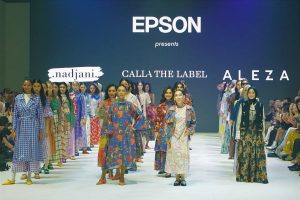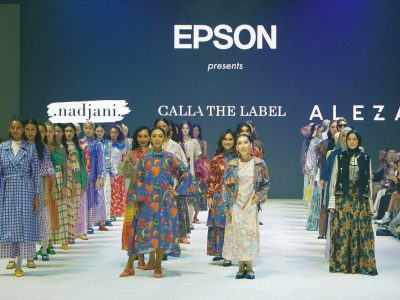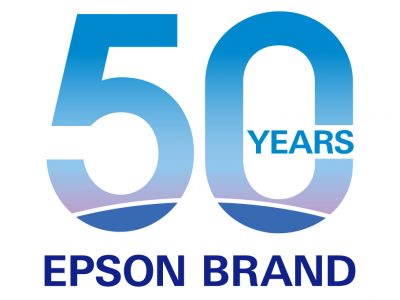Revolutionising the Textile Industry with Digital Textile Printing

Producing over 100 million meters of fabric and 3 million garments annually, Sarena is one of the leading textile companies in Pakistan.
The growing call for the textile industry to seek sustainable solutions—along with market demand for high-speed manufacturing and quality—inspired Sarena to explore new technologies to address customer needs.
“One of the reasons why we went for digital printing was because it was a new process. It was the need of the times,” says Mr. Zaman, Managing Director at Sarena. “We were amazed to see the kind of quality of Epson printers. It was our quest for improvement. It was able to achieve what other machines are not able to.”
Sarena started in 2001, as a sister company to Sefam Industries. After launching operations as only a dyeing company, Sarena soon began evolving quickly. In just a few years, the company expanded to a cluster of manufacturing facilities located in a single factory complex.
Seizing the opportunities offered by technology, Sarena was from the start equipping its facilities with state-of-the-art machines and processes. “We’re one of the few companies in textile printing which has a whole R&D department,” Mr. Zaman says.
“One of the things that we’re very particular about is keeping up with technology,” says Mr. Zaman. “The kind of quality, the kind of perfection that digital printing gives to our designs is not possible in the traditional types of printing.”
Digital textile printing delivers repeatable precision in every design and every meter of manufactured garments. Consistency in output ensures seamless production across the whole factory cluster at Sarena.
Seeking innovative printing solutions, Sarena decided on Epson’s pioneering digital textile printer—the Monna Lisa Evo Tre 32, which prints directly on fabric.
Direct-to-fabric (DTF) printing significantly speeds up the production by eliminating many pre-printing steps necessary in traditional screen printing.
Instead of months, the manufacturing process takes days.
Mr. Zaman underlines that the decision to explore digital printers was made because of this technology’s ability to deliver design perfection and versatility. “I can make a hundred colorful designs,” he says. “The colors are richer and sharper, and the designs we aren’t able to get on other printers that require a certain amount of sharpness we can only get on Epson printers.”

Epson’s Monna Lisa Evo Tre prints on a broad variety of fabrics and weaves, enabling designers to pursue designs in an unlimited palette of colors.
Consistent bi-directional printing provided by PrecisionCore, Epson’s proprietary solution, ensures unparalleled adherence to details. The technology is capable of reproducing complex geometric patterns and designs.
Fully compatible with standard design software including CAD, the Monna Lisa Evo Tre lets designers realize their ideas and fill even the most complicated orders from customers.
“We can produce anywhere from 1,000 meters a day to 5,000 meters a day on the Epson printer, depending on the kind of quality that we want and the requirement of the customer,” says Mr. Zaman.
With the Monna Lisa Tre Evo 32, Sarena can manufacture up to 704 sqm/h of high-quality (300×600 dpi) printed garments.
Considering the scale of Sarena’s operations, easy maintenance and reliability of the machines are imperative for the company’s streamlined manufacturing process.
The Monna Lisa Evo Tre was built for high-capacity usage, with core elements designed for easy maintenance. The printer is equipped with remote monitoring, giving Sarena instant access to the necessary operational information.
Along with the growth of Sarena’s production, the company has been putting great emphasis on the environment. In 2013, Sarena invested in its own wastewater treatment plant.
The Monna Lisa Evo Tre printers, and Genesta inks specifically developed for this line, enables companies to reduce water usage by more than 75% and decrease energy costs by more than 40% compared to traditional printing. Genesta inks are also eco-friendly and have received two stringent environmental certifications. “Oeko Tex certifies that it is non-hazardous, and it is very important that the printer is certified to be using non-hazardous chemicals,” Mr. Zaman adds.
“It’s all in keeping with the kind of philosophy that we have,” says Mr. Zaman on Epson’s stance on the environment.
Sarena is a global manufacturer producing millions of garments annually. The company provides full-cycle garment manufacturing services, from weaving and dyeing to printing and manufacturing of non-denim fabrics.
With automation and high-quality garments, Sarena successfully addresses the fast-changing demands of the market.
Recognising the disruptive potential of digital printers, Mr. Zaman put the company at the forefront of printing revolution. With the versatility of the Monna Lisa Evo Tre, Sarena can now print on any type of fabric at high production speeds and is set to revolutionise the textile manufacturing industry in Pakistan, taking textile printing to the next level in terms of quality and production.
“With our vision of excellence, we want to always go for something that is making top quality,” says Mr. Zaman.
Posts You May Like
Get Social With Us



